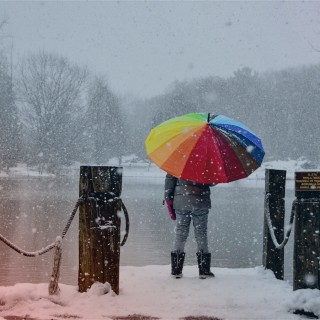Power sector after the elections | Three tasks for the new government
Insights
The Polish energy sector is at a turning point. What will the next government find after the elections in the autumn? It will inherit not only electricity market, but also smog.

Recently, wholesale electricity prices have increased by about 50%. The increases result from higher prices of CO2, coal, gas and, what is harder to notice, less and less competition on the power market. Some international companies have moved out of Poland. The nationalisation of the energy sector and the imposition of unusual tasks, such as rescuing sinking mining industry, had a negative impact on the value of Polish utilities. This will result in a reduction in their investment capacity, and yet we are only just at the threshold of changes in the energy sector.
Black clouds are gathering over the sector, and there is a fear for the future among the energy industry. Imports of coal, gas and electricity are on the rise. It is not included in any Polish strategy, so it is not known if it is a temporary trend. The energy policy is conducted with the movements of a chess horse. On the one hand, the government is abandoning wind farms, on the other hand, it is organizing new auctions for onshore. It relies on coal, but closes the mines.
The demand for energy is growing and coal-based power generation is becoming a ball of throat. Prices of CO2 emission allowances have increased by 350 percent in recent years. Coal fired units are becoming more and more vulnerable and loss-making. The introduced support for the energy sector (the so-called capacity market) will be a large cash boost for power companies. However, this is a temporary solution, because public support for coal will soon be no longer permitted in the EU. In addition, it costs a lot, as we will see in 2021, when the cost of the capacity market will be added to our bill.
Concentration of problems
Where should the next government start?
Firstly, filling the gap left by the coal-fired power plants that have been shut down.
A large part of power plants emits a lot of pollution and is old enough not to be worth modernising. In ten years' time at the latest, the exploited lignite resources will rapidly cease to exist. A quarter of the power units be entitled to a a well-deserved pension. Until then, a nuclear power plant will certainly not be built. It is difficult to fill such a big gap in a short time. We need to start by improving energy efficiency. In addition, there is a need for investments in solar energy, offshore and onshore wind farms and other. These are the cheapest and most promising technologies, although they require major changes in the organisation of the energy market and transmission. The future lies in small and local power plants for biomass and biogas. We need to unblock the import of electricity. The unused potential is also hidden in small heating systems. Gas also has prospects in Poland, although it should be remembered that its resources are not unlimited.
Secondly, the fight against smog.
Air quality will not improve if we continue to burn coal in domestic furnaces. Poland is the last country in Europe where over 70% of buildings are heated with wood and coal (increasingly imported from Russia). We have the worst air in the European Union. The government should present a plan for the abolition of coal in households, create incentives for the development of district heating and gas networks, give an impulse to the development of heat pumps in combination with photovoltaics. We need to strengthen local governments - both in terms of regulation and financing - to let them take the initiative in the energy transition.
Thirdly, the distribution of the costs of the energy transformation.
The government's panic reaction to rising electricity prices and the fact that all parties voted in favour of the so-called price freeze in the Parliament shows that electricity prices are the Achilles' heel. Rising prices of food, which place a greater burden on household budgets, do not generate such emotions. The annual growth of the bill for food by PLN 200 per year seems not to be a problem. However, rising prices must not be allowed to increase poverty, nor must a pensioner wonder whether to turn on the light or buy medicines. Therefore, it is necessary to modify energy allowances and support energy efficiency, without which public support will not be possible. The energy-intensive industry must not be left behind either. In steel and cement plants, electricity bills account for up to 10% of all costs, and companies have to cope with tough international competition. Already now, wholesale electricity prices in Poland are higher than in Germany, for example. The industry must be given a hand by exempting itself from part of the charges and supporting energy efficiency. However, prices must not be frozen, as this is destroying a competitive energy market.
"4xD" revolution
The big energy units are becoming a thing of the past. Decentralisation, digitalisation and decarbonisation are the three most important trends in the energy sector. Diversification is also important - as much as 78% of energy is generated from coal - we are the third country in the world most dependent on black fuel.
The Winter Package, the largest set of energy and climate regulations in the history of the European Union, comes into force. Europe is committed to increasing consumer rights, energy efficiency, reducing emissions and developing renewable sources.
The Polish government should use the Winter Package as a tool to save electricity generation in Poland after the elections. Maybe it's the last bell to combine the green and the black together.
dr Joanna Maćkowiak-Pandera


